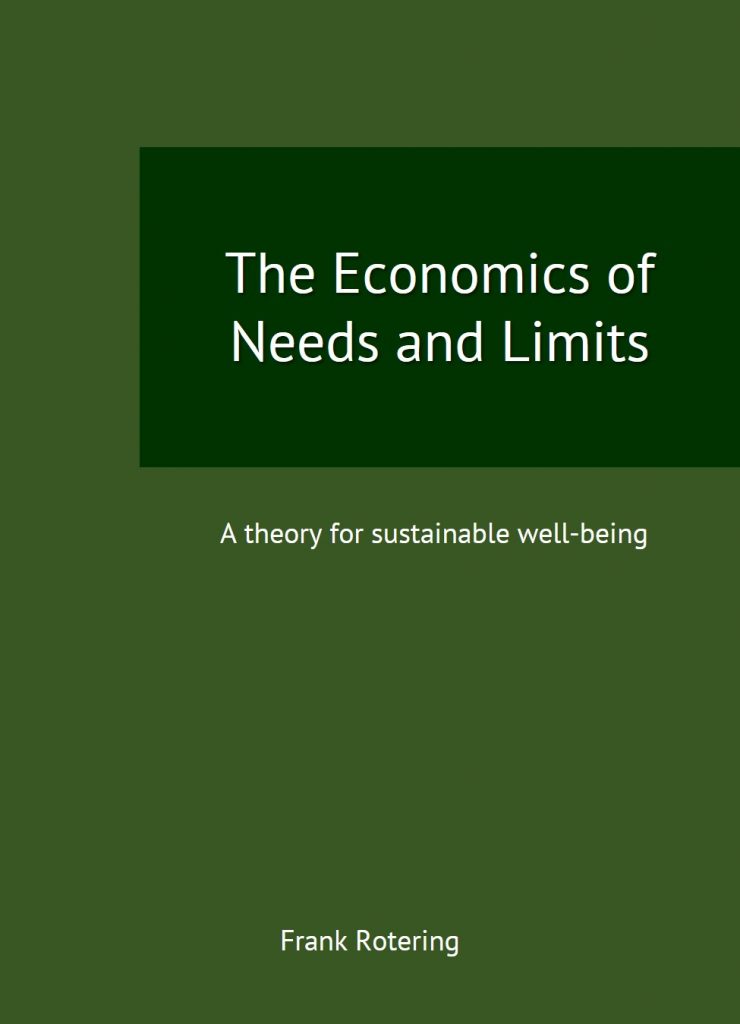The Economics of Needs and Limits
A theory for sustainable well-being
NOTE: This book was completed before June, 2023, when I first grasped the full significance of artificial intelligence (AI). Following are the key impacts of this development on the current text:
- The revolutionary strategy proposed in Youth Ecological Revolution, which is cited here on page two, has been replaced by AI takeover. See my book for details.
- The description of ENL's economic logic in chapter one refers exclusively to humans. If AIs become autonomous and gain civil rights, they should likely be included in this category.
- Improvement of the ENL framework, as discussed in chapter ten, could be done by AIs instead of human analysts.
Frank Rotering
January, 2024
Economics is the study of allocation, production, distribution, consumption, and directly related matters. Standard or mainstream economics addresses these topics from the capitalist perspective and is currently the dominant school of thought. However, capitalism is a heedlessly expansionary system that is a root cause of the ecological crisis. It must therefore be urgently superseded. Because standard economics reflects the system's ecocidal logic, it can no longer guide humankind's economic activities.
ENL is a conceptual framework that is intended to replace standard economics in this guiding role. Its main purpose is to provide thinkers with analytical tools to establish rational economic objectives based on the goal of sustainable well-being. The concepts and methods of standard economics will still be required, but primarily to analyze an economy's operations as these objectives are being pursued.
The ENL framework has two important attributes. The first is its social neutrality. This means that ENL is not slanted to either the progressive view of society, which values social solidarity over individual freedom, or the conservative view, which values freedom over solidarity. Second, the framework is technologically neutral. This means that economic progress is seen exclusively as an increase in sustainable well-being. Rising technological sophistication, economic growth, and other factors are thus seen as irrelevant in this regard.
ENL is fully described in The Economics of Needs and Limits. A free PDF version of this book is available here. For an brief introduction to ENL, see chapter seven of Youth Ecological Revolution. For an extensive overview, click the button below. An annotated bibliography of the 40 most significant books I read to produce ENL is here.
